Reworking
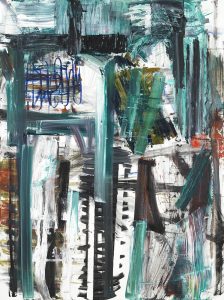
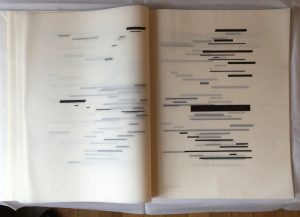
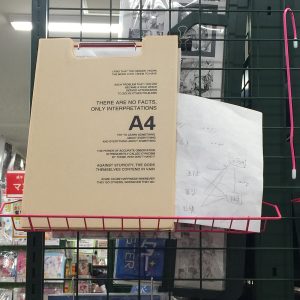
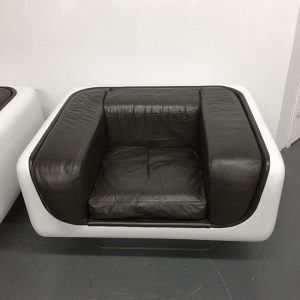
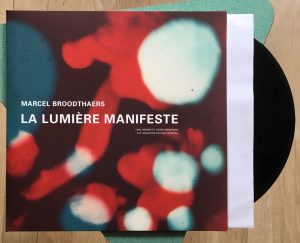
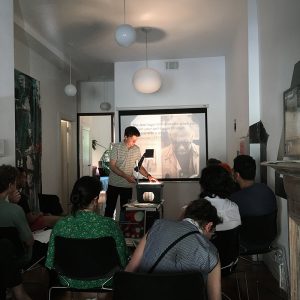
William Andrus
Paige K. B.
Marcel Broodthaers
Louise Fishman
Raf Wollaert
May 22–July 3, 2022
The Broodthaers Society of America presented Reworking, the fourth installment in our evolving investigation of work: what it means to work, to rework, to work for hire, or to be lazy—in relation to making works of art. Reworking represented some particularly nuanced facets of this idea, facets that entail someone deciding that the materials at hand are somehow unacceptable, dubious, or incomplete.
For William Andrus, an in-house designer at Steelcase Corporation throughout the 1970s, reworking meant turning the technical production of a loose idea by Warren Platner into an impeccable, fully fledged design object. Andrus did this work under the extractive rubric of work for hire: work prepared by an employee within the scope of their employment. Although the “Space Age Chair” was initially attributed to Platner, over time it has come to be attributed to both designers and, in some cases, exclusively to Andrus.
Paige K. B. skates a line between things that enter the world as “facts” and the motivated biases that undermine and propel them. Shot through with multiple layers of material, circular reasoning, literal and figurative threads, and sundry pop imagery, K. B.’s work acts as a kind of fly paper onto which anything that sticks can claim to be valid. Indeed there is a willful “stickiness” to K. B.’s work, to borrow the trendy business term for how well a given image, brand, or conspiracy theory stays with us. Naturally, working with sticky material means running the risk of having it stick to you as well, a quotidian hazard that we all negotiate.
The hazards that intrigued Louise Fishman throughout her illustrious career were largely of her own making: color, expressive brushwork, the grid. In toto, her oeuvre makes her one of the paramount abstract artists of the past half century. We are delighted to be able to include a signature late work, As Is, in this exhibition, motivated by the fact that its vigorously worked surface evokes literary processes as much as painterly ones. In this respect, the symbiosis between As Is and Marcel Broodthaers’ Un coup de dés, jamais n’abolira le hasard, which will also be present in the show, is extraordinary.
Raf Wollaert is a Doctoral Fellow at the University of Antwerp, where he researches Marcel Broodthaers’ use of film and media. Two years ago, when fourteen reel-to-reel tapes of Broodthaers reading some of his poetry were unearthed, Wollaert availed himself with the goal of giving the material the treatment it deserved. Working with the tape’s eventual private collector, Wollaert and a team of experts—Lotte Beckwé, Saskia Gevaert, Maria Gilissen, and the MuKHA, Antwerp—remastered it into a gatefold vinyl record titled La Lumière Manifeste. The album is replete with scholarly liner notes by Beckwé, Gilissen, and Wollaert as well as a complete booklet, in French, of the poems. Wollaert will present, play, and discuss this newly minted album at the opening reception. English translations of the poems will also be available.
the Broodthaers Society of America
a related publication